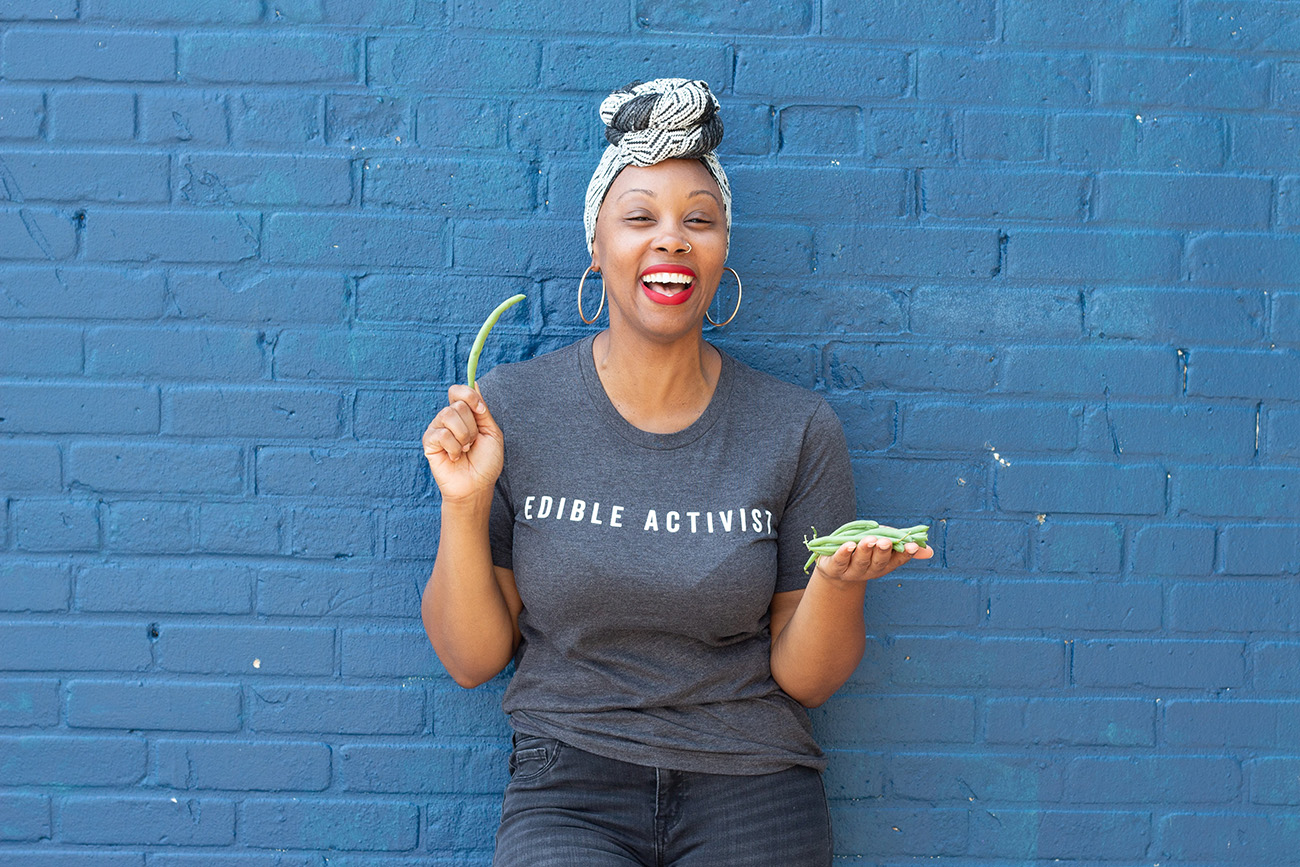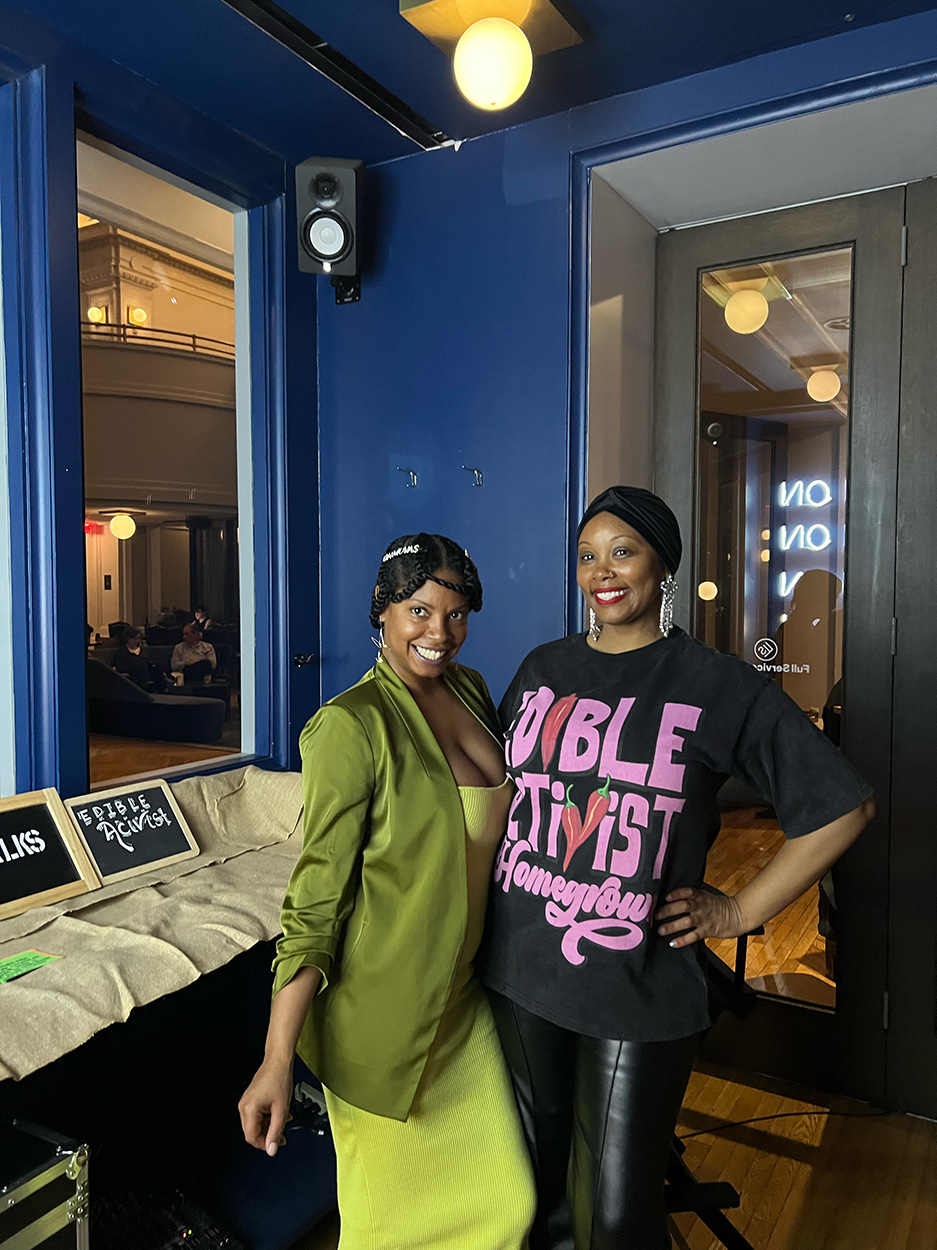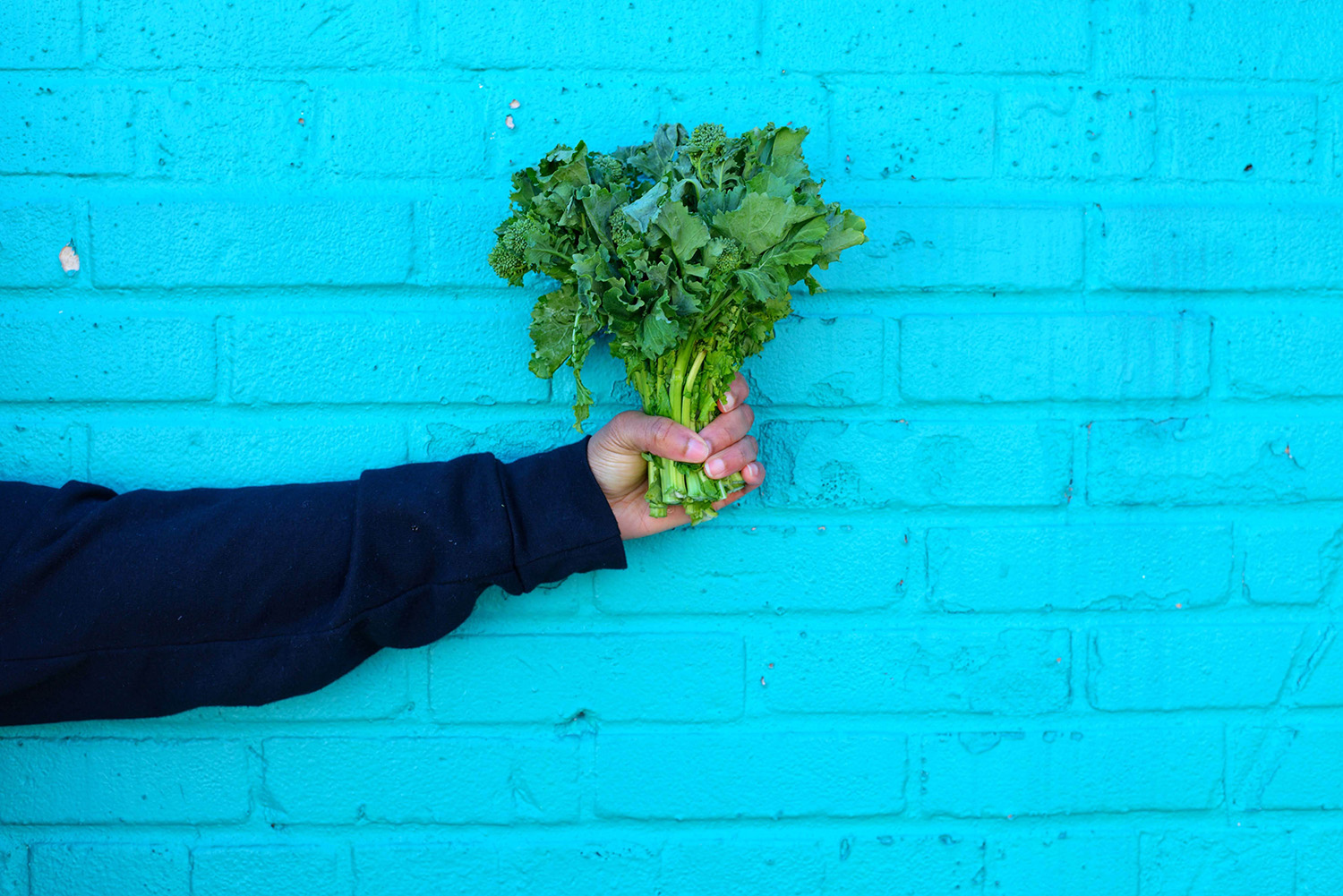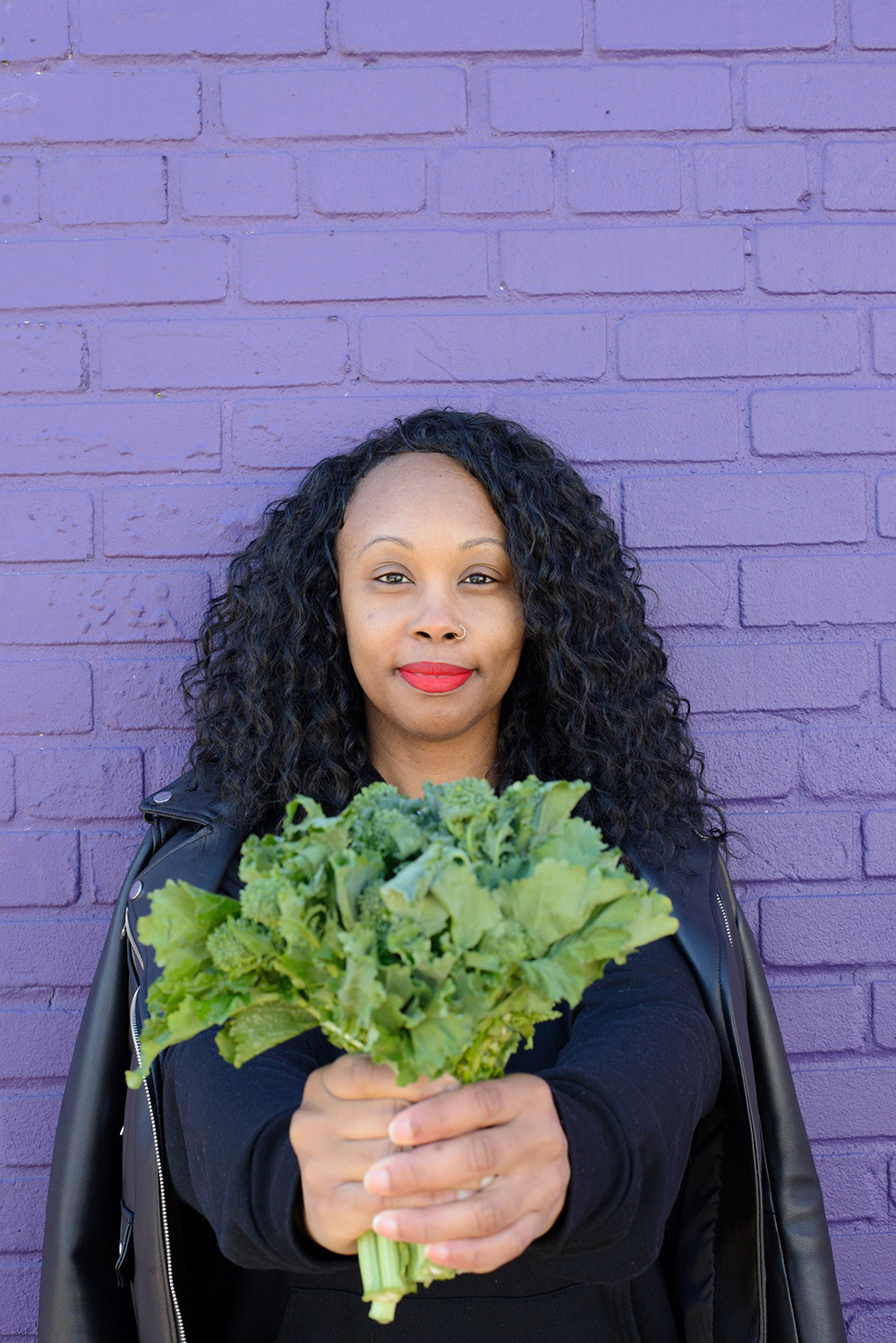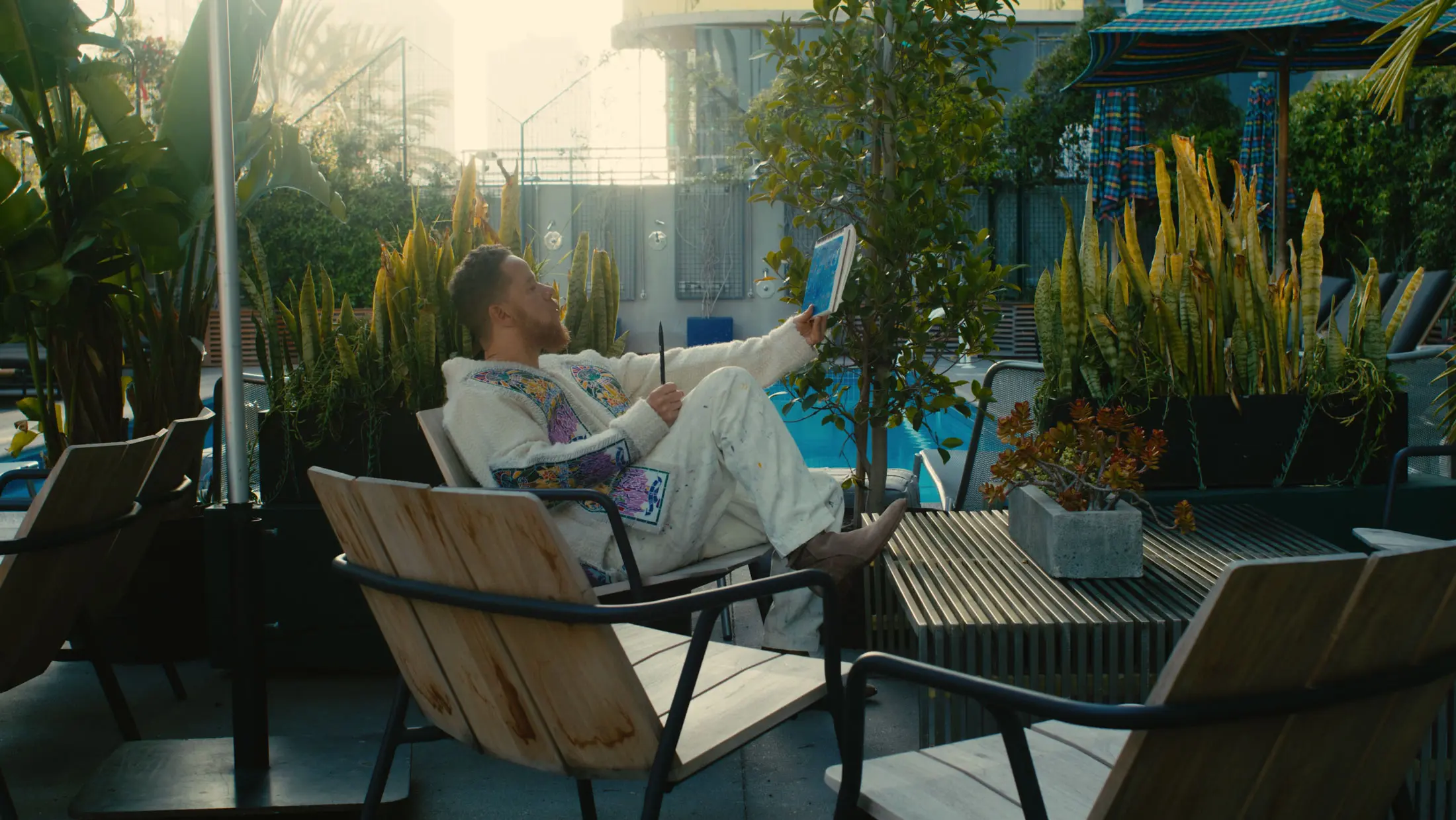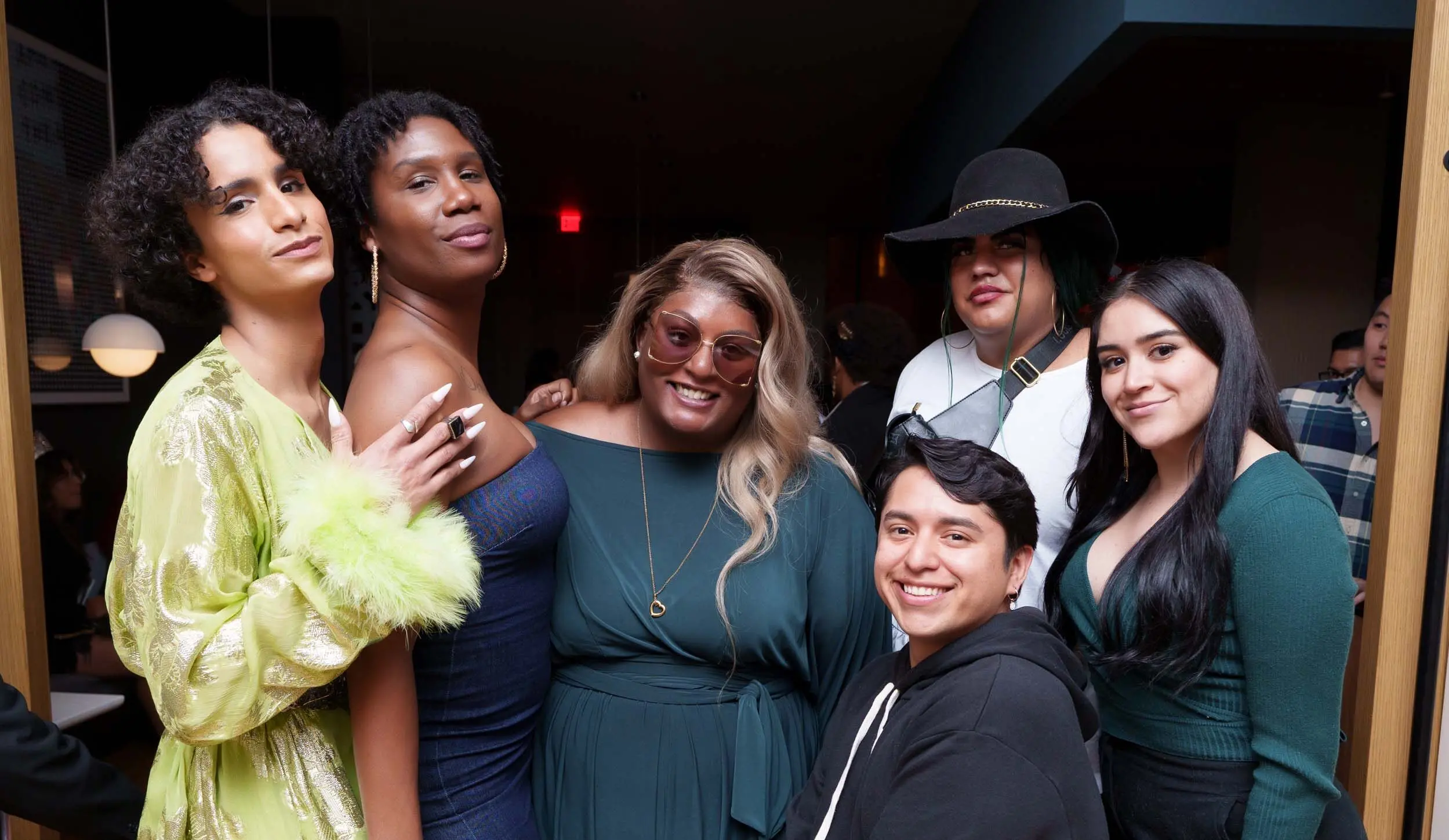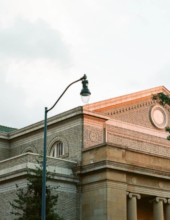Edible Activist: How Melissa L. Jones
Amplifies Voices of Color in Food & Agriculture
Host Jack Inslee
Diving into this week’s conversation and learn how Melissa L. Jones, the visionary founder and creative force behind Food Talks N Color, turned a personal family food journey into a thriving platform. Melissa has made it her mission to amplify voices of color in food and agriculture, and in this episode of Hear Here, she shares with Jack Inslee the story behind her work, as well as the inspiring people and communities driving change in the DMV area and beyond—from farm to table.
Melissa L. Jones: I am the great-granddaughter of a sharecropper from Mississippi. Farming and growing are in our bloodline—it’s in every person of color’s lineage. It’s important to me to find and amplify those voices that are often overlooked, particularly in this crowded digital space. Highlighting these stories shows we’ve always been part of this work, and how vital it has always been.
Jack Inslee: Welcome back to Hear, HERE. I’m your host, Jack Inslee, coming to you from Washington, D.C., with a special guest: Melissa L. Jones. She’s the host of Edible Activist, a podcast amplifying Black and POC voices in food and agriculture. Melissa, tell us what inspired you to start this podcast.
Melissa: First, I have to thank you for giving me the opportunity to bring so many voices into this space. My why is rooted in my personal journey. Back in 2007, my mother developed a gluten intolerance, and instead of going to a traditional doctor, she chose the holistic route. This opened our eyes to the intersection of health and food. That experience drove me to learn more about our food systems. I started attending events and noticed I was often the only Black person there. That was confusing to me because I knew there were Black growers, farmers, and food activists out there. I decided to search for and highlight their stories.
Jack: Why do you think these communities, specifically Black and POC voices, aren’t more visible in agriculture spaces?
Melissa: We exist in these spaces; the problem is we aren’t always given platforms to be seen. There hasn’t been enough media highlighting Black voices in agriculture. And mainstream media only highlights us in specific months, like February or during Black History Month, which is frustrating because our contributions should be acknowledged year-round.
Jack: How has social media and podcasting helped you in this mission?
Melissa: Social media and podcasting have been crucial. I’ve been able to connect with people across the country, sharing stories that would otherwise remain hidden. For instance, a young Black woman once reached out to me to say she started growing food on her balcony after listening to the podcast. Moments like that remind me that this work is impactful, even if it’s not always visible.
Jack: What makes the DC area special in terms of agriculture?
Melissa: The DC area is unique because many of the people I interview are either natives or have roots in the South. They carry that history into their work here. One person I have to mention is Gail Taylor, who runs Three Part Harmony Farm. She’s been a leader in urban farming and played a key role in pushing forward the DC Farm Bill. Gail and others are making urban farming possible here, and their stories make this work special.
This transcript has been edited for length and clarity.
Listen to the whole story above, and follow along on Spotify.
